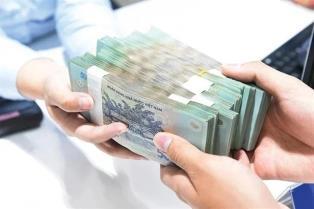In the context that room for monetary policy is narrowed due to prolonged interest rate differentials and exchange rate pressures, Việt Nam should promote the role of fiscal policy, considering it as the key tool in promoting growth.

HÀ NỘI — Balancing growth and stability is no easy task for the State Bank of Vietnam (SBV) as monetary policy faces mounting pressures and unpredictable fluctuations.
Data from the SBV shows that by the end of August 2025, total outstanding loans across the economy reached VNĐ17.46 quadrillion, an increase of 11.82 per cent compared with the end of 2024.
It is estimated that credit could rise by 20.19 per cent for the full year—the highest level in many years, far exceeding the average of around 14.5 per cent.
However, behind this strong credit growth lie concerns. According to SBV Deputy Governor Đoàn Thái Sơn, commercial banks are being forced to increase capital raising, which could push both deposit and lending interest rates higher.
Sơn also cautioned that a rapidly expanding money supply might carry the risk of triggering inflation in the medium and long term.
Associate Professor Dr Phạm Thế Anh from National Economics University warned of the risk of asset bubbles, currency devaluation and inflation when the rate of money supply growth in Việt Nam significantly exceeds GDP growth.
This would limit the ability to loosen monetary policy to support economic growth, Anh said.
According to Anh, monetary policy management should not only support growth targets but also control inflation, stabilise currency value and ensure macroeconomic stability. Money supply growth should follow and be consistent with GDP growth. Money supply should not be proactively loosened to stimulate growth.
As the SBV’s monetary policy orientation has so far leaned towards loosening to support growth, Dr Nguyễn Đình Cung, former director of the Central Institute for Economic Management (CIEM), noted that loosening monetary policy to promote short-term growth would not be the optimal solution, especially when the economy has not yet fallen into crisis or demand has not sharply declined due to external shocks.
According to Cung, in the 2026–2030 period, the key task must be to control inflation, stabilise the value of the Vietnamese đồng and ensure a solid macroeconomic foundation.
World Bank (WB) experts also noted that liquidity in the banking system might be constrained when the ratio of outstanding loans to deposits at many banks, including large commercial banks, exceeds 100 per cent.
Raising credit growth targets might weaken credit quality, especially if banks are forced to loosen lending standards, the WB experts warned.
In a context where room for monetary policy is limited due to prolonged interest rate differentials and exchange rate pressures, the WB experts recommended that Việt Nam should promote the role of fiscal policy, considering it the key tool for driving growth.
Harmonious coordination between monetary policy and fiscal policy would be essential to maintaining macroeconomic stability and ensuring sustainable economic development, they said. — BIZHUB/VNS
- Tags
- banking





